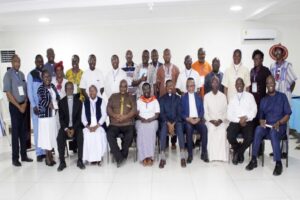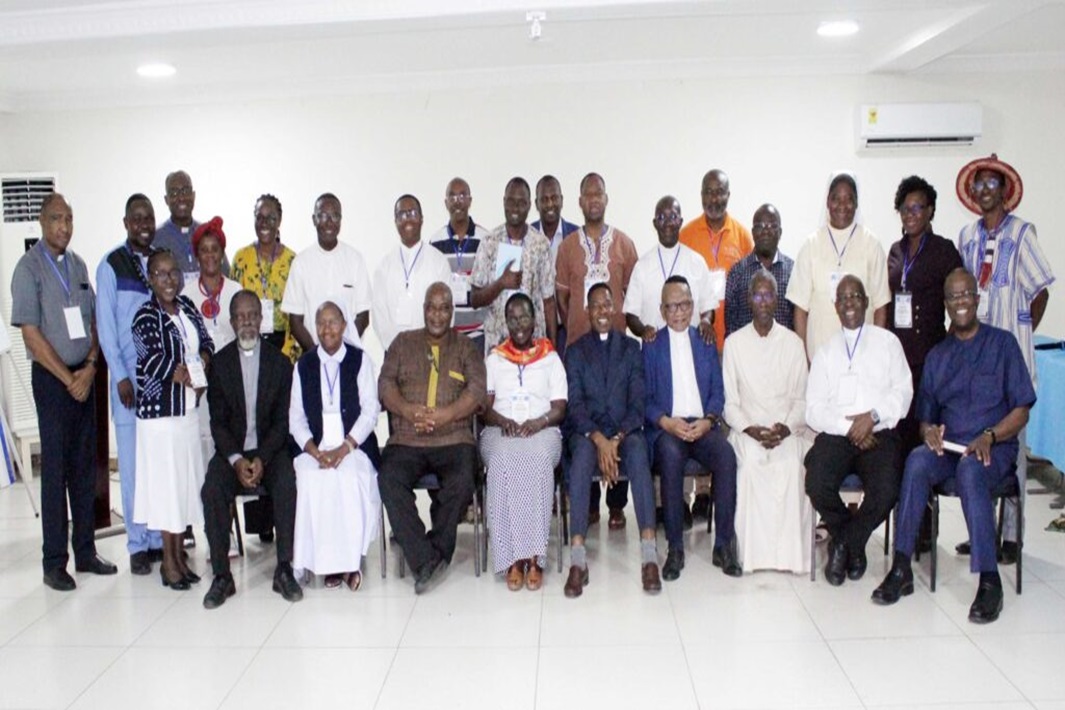By Paschal Norbert
ACCRA, APRIL 10, 2025 (CISA)— The Symposium of Episcopal Conferences of Africa and Madagascar (SECAM) has concluded a landmark theological seminar in Accra, Ghana, aimed at shaping a visionary roadmap for the Catholic Church in Africa and its islands over the next 25 years.
Held from April 2 to 3, 2025, the seminar gathered leading African theologians, pastoral agents, and notable African delegates who participated in the recently concluded Synod on Synodality, to reflect on the future of the Church on the continent under the theme: “Vision of the Church-Family of God in Africa and its Islands for the Next 25 Years: 2025–2050.”
The seminar was officially opened by Fr Rafael Simbine Junior, Secretary General of SECAM, who underscored the Church’s mission to respond prophetically to Africa’s contemporary challenges while remaining rooted in its rich spiritual and cultural heritage.
Fr Alfred Bebodu, SECAM’s Deputy Secretary General in charge of Evangelization, set the tone for the discussions by highlighting the complexity of the African context. He described Africa as “a continent brimming with youthful energy, cultural richness, spiritual depth, and a growing Christian population,” yet one that continues to face enduring challenges such as political instability, poverty, environmental degradation, and shifting cultural values.
Moderating the sessions was Fr Prof Albert Ngengi Mundele, a priest of the Catholic Diocese of Kenge in the Democratic Republic of Congo (DRC) and director of the Catholic Biblical Centre for Africa and Madagascar (BICAM-CEBAM), a Nairobi-based SECAM organ responsible for promoting biblical apostolate across the continent. Theologians and pastoral workers engaged in robust discussions organized around twelve key themes, which were grouped into six major areas of focus: evangelization; ongoing formation and co-responsibility; justice, peace, and integral human development; care for the climate and environment; ecumenism and inter-religious dialogue; and technology and digital evangelization.
These thematic areas encompassed a range of topics central to the Church’s mission and witness in Africa, including Catholic education and theological tradition, building a self-reliant Church, fostering a family-based model of leadership, formation in missionary discipleship and synodality, care for creation, empowering youth in the renewal of the Church, health and wellbeing, the liturgical life of the African Church, and the Church’s role in political engagement and digital mission.
Through a combination of plenary and group sessions, participants developed a comprehensive vision document articulating the aspirations and strategic direction of the Church-Family of God in Africa from 2025 to 2050. The document, presented at the seminar’s closing on April 3, will now be reviewed by SECAM’s Theological Commission (Comitheol). A finalized version will be submitted to the African bishops for deliberation during their next plenary assembly scheduled for July/August 2025.
This seminar is part of a broader tradition of theological reflection and leadership by African scholars, who have played a critical role in contextualizing the Church’s universal mission to meet the needs and hopes of local communities. Since the first African Synod in 1994, African theologians have advanced the model of the Church as the “Family of God,” which continues to shape ecclesial identity and pastoral practice across the continent. Their contributions, rooted in lived experience and deep faith, are increasingly influential in the global Catholic discourse.

As the Church marks the Jubilee Year 2025 under the theme “Pilgrims of Hope,” the voices of African theologians, inspired by the experiences of the recently concluded Synod on Synodality, are helping guide the Church in Africa toward a future of deeper communion, active participation, and bold missionary engagement. The seminar in Accra stands as a testament to this growing momentum, offering a renewed and hopeful vision for the journey ahead.
